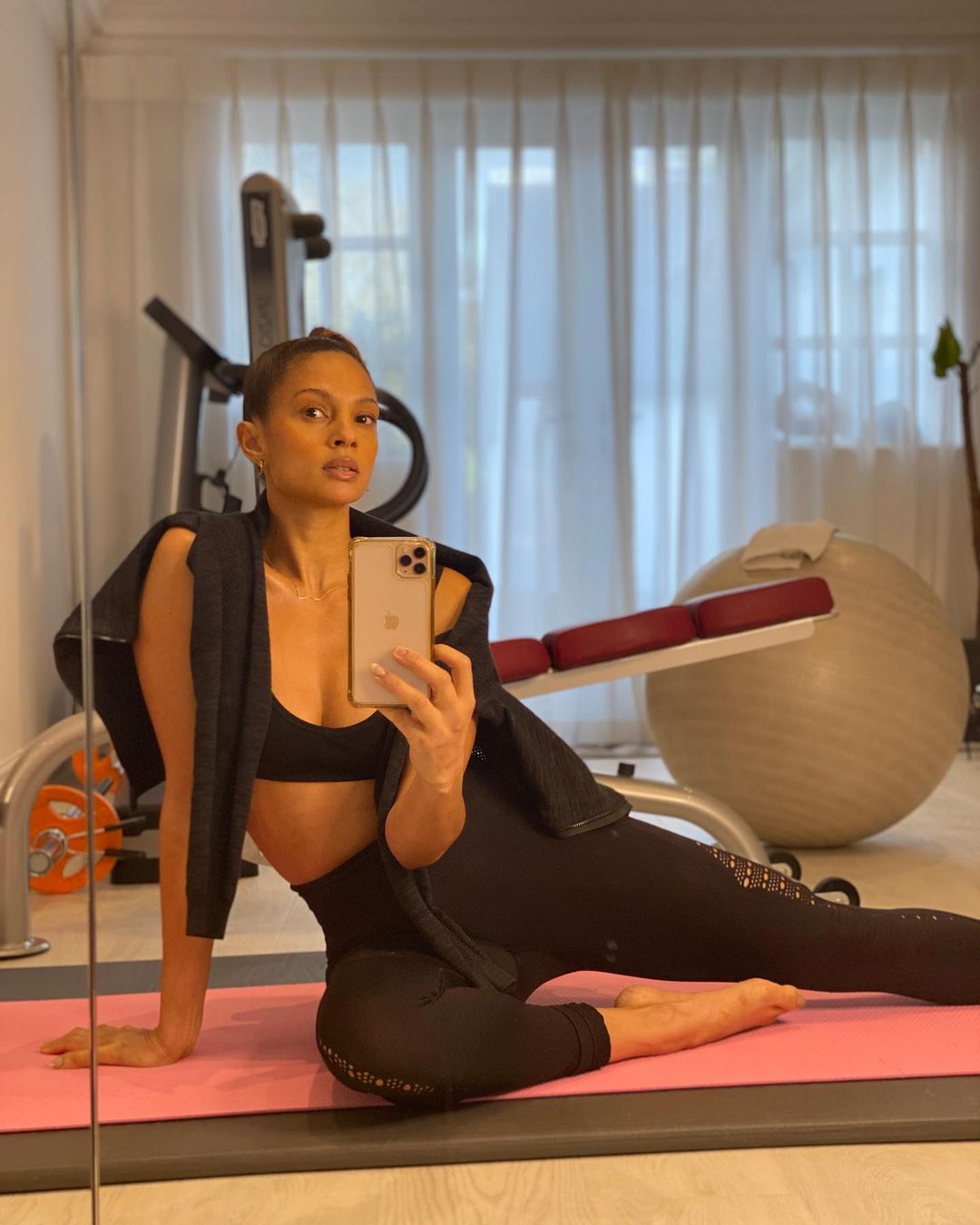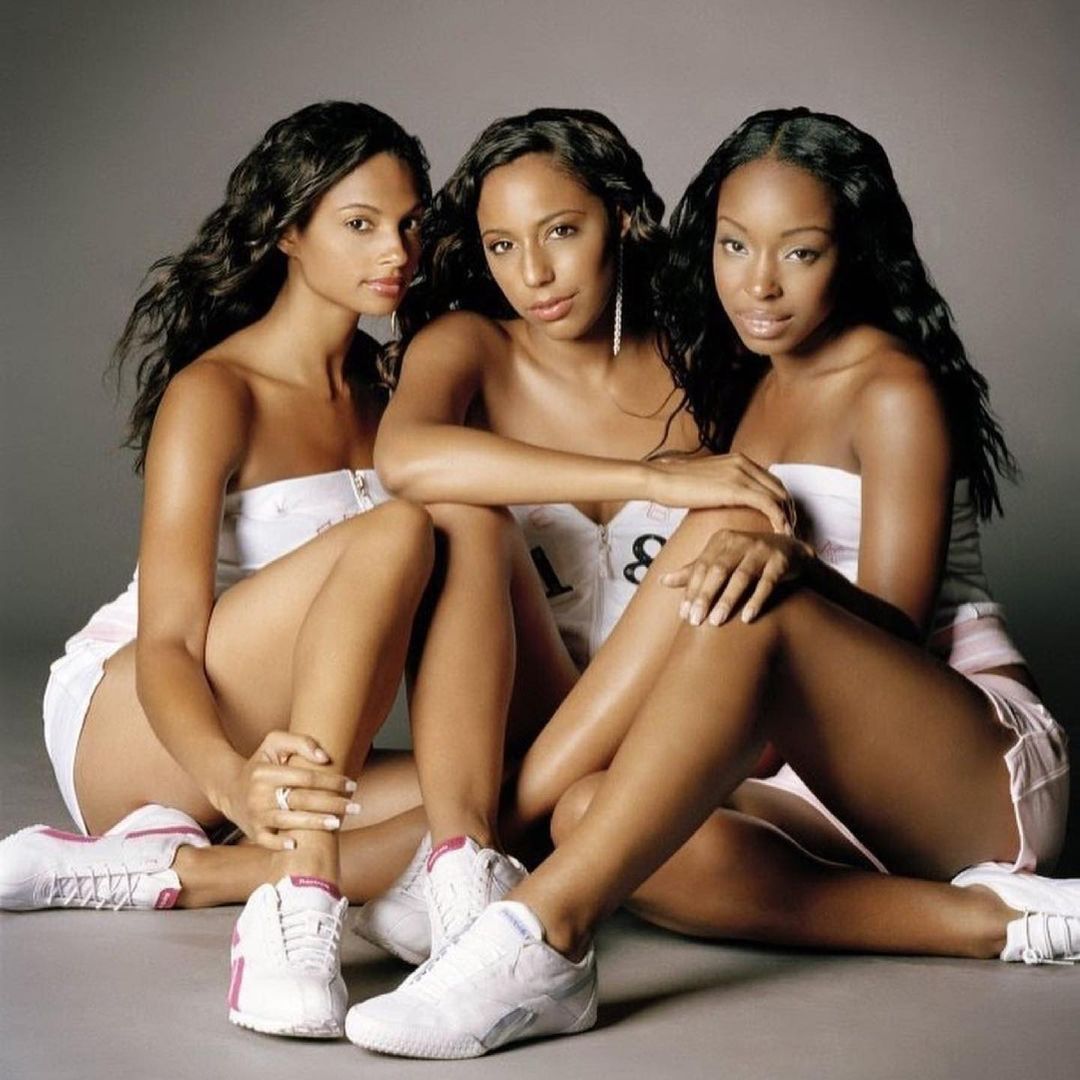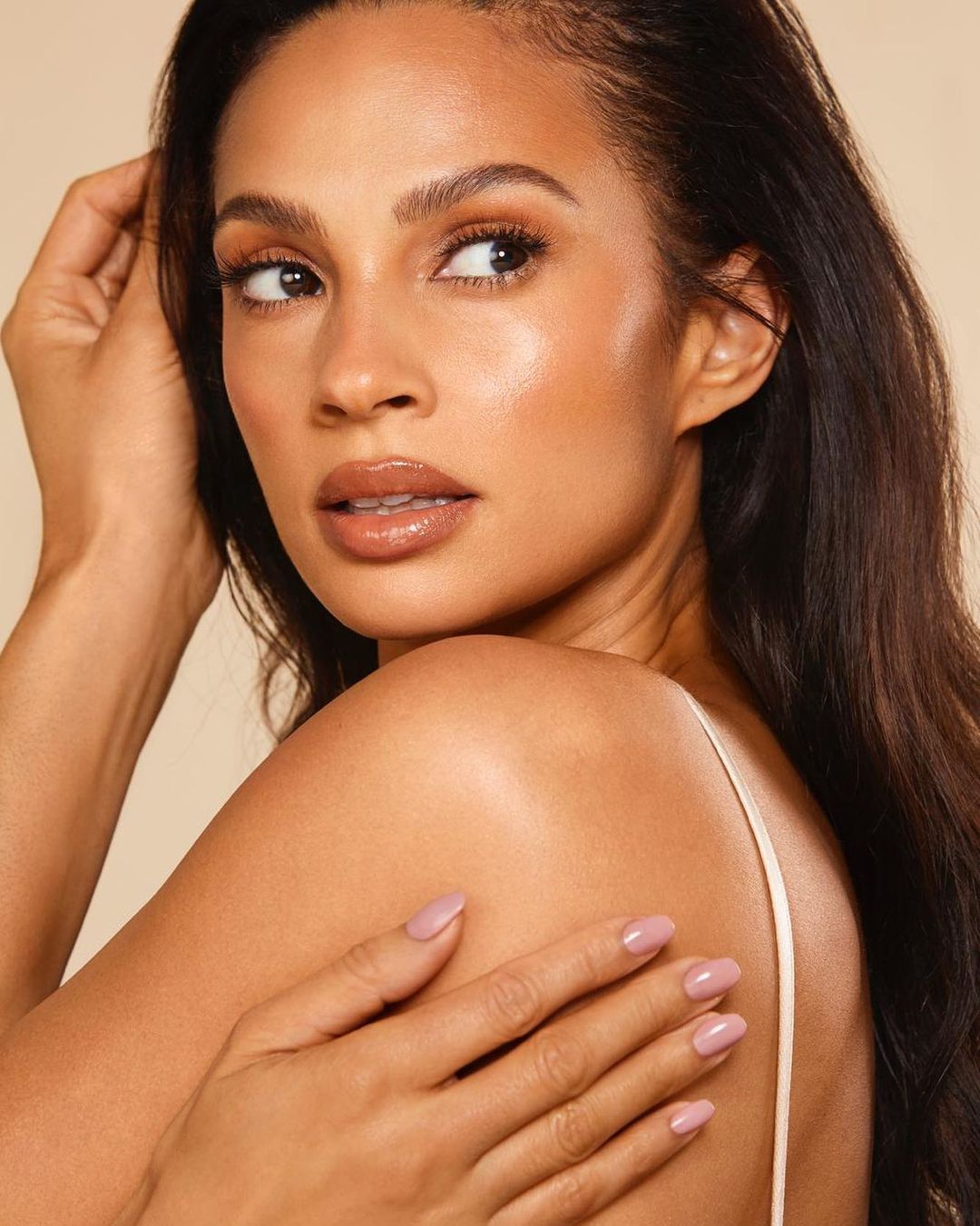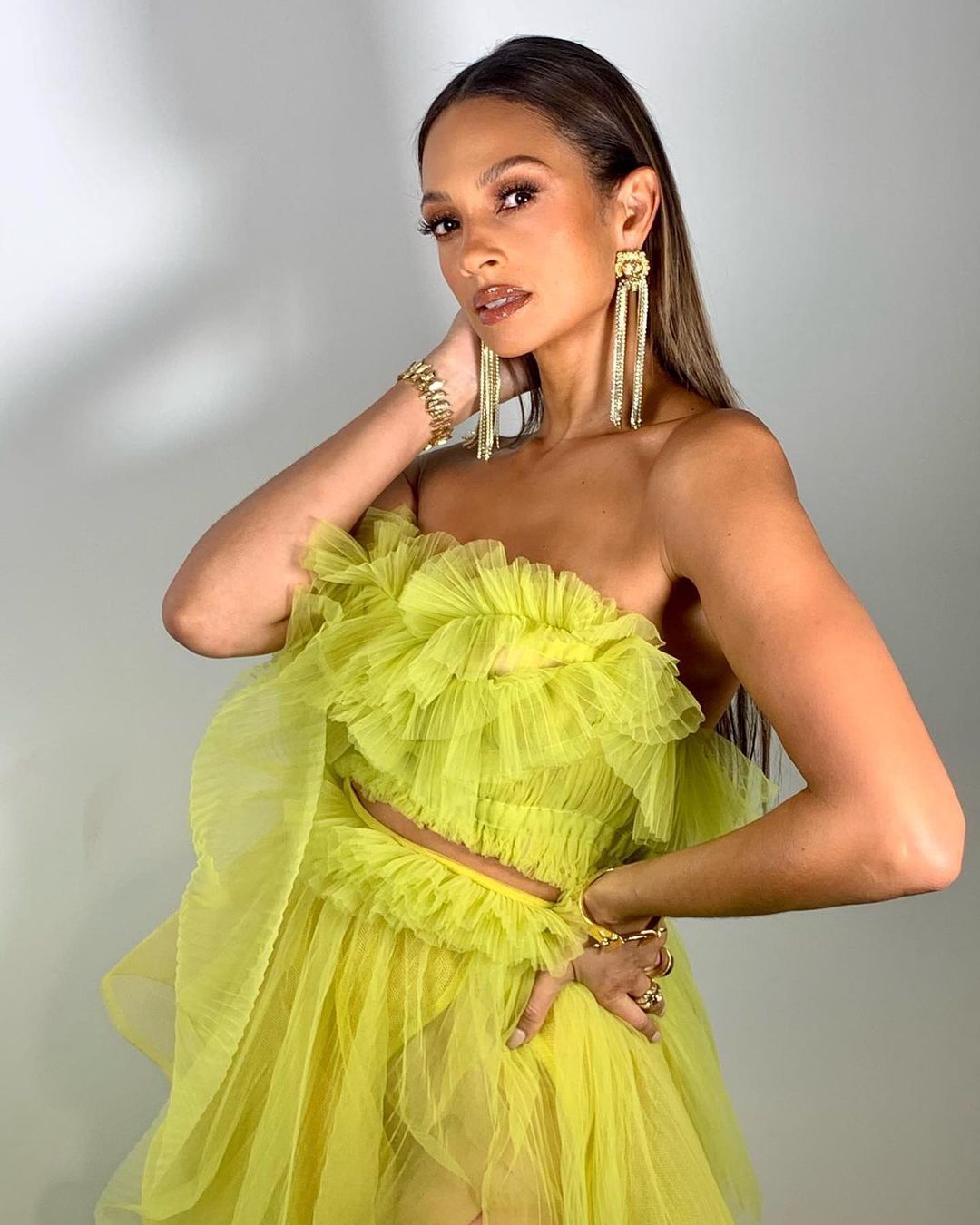Alesha Dixon: “I’ve retired myself from caring what people think”
Popstar-turned-wellness entrepreneur Alesha Dixon on learning from her mistakes, those heady Mis-Teeq touring days and finding balance from the inside-out.

Popstar-turned-wellness entrepreneur Alesha Dixon on learning from her mistakes, those heady Mis-Teeq touring days and finding balance from the inside-out.
It’s a tough ask to imagine Alesha Dixon looking remotely stressed or burned out - she’s the epitome of cool, calm and collected and is positively oozing health and wellness when we speak via Zoom for this interview. But juggling the responsibilities of parenting (Alesha and partner Azuka Ononye have two daughters, Azura Sienna and Anaya Safiya) with a demanding career (the former Mis-Teeq singer is a Britain’s Got Talent judge and recently joined the panel on Australia’s Got Talent, too) alongside her own wellbeing and relationships hasn’t always come easy, she says. Here, the popstar-turned-wellness-entrepreneur talks striking that elusive balance and why she hopes her new baby - health and wellness brand, NobleBlu - might do the same for others, too.
Congratulations on your new venture! How did NobleBlu come about?
I've wanted to set up my own business for a long time. It’s been a couple of years in the making and I'd always said to my business partner that I'd love to do something in the wellness space. It feels like a really natural fit and it’s something I'm passionate about. I met with several different companies and it wasn't till I met with HealthKind and really liked their vision, morals and standards that I thought we could work really well together.
What’s the idea behind it?
Well, throughout the whole year I've been working on it behind the scenes and planning the best way to launch and what we'll release first. We decided phase one would be supplements which is what we're starting with. But my overall dream and intention for the brand is that it becomes a one-stop shop for all things wellness - from a yoga mat to CBD to a nice book.
Like Goop?
Somebody asked me that the other day! I love Goop, I think it’s really, really cool. I love it when you can visit somewhere or access a brand that can offer you multiple services. The intention is to hopefully help people improve their lives and wellbeing. As we can all acknowledge, the last year has taught us all so much in terms of how important self-care and taking care of ourselves is.

Where did the name come from?
It’s an anagram of my name and my daughter [Azura]’s name. My daughter's name means ‘sky blue’ and Alesha means ‘noble’ so I managed to put the two together. I think there's something very pure about a beautiful blue sky – when you look at the sky on a clear, beautiful day it makes you feel good. It's a chemical thing, isn't it? I thought that felt like the right tone for the brand because it’s about making you feel good.
You’re right about recent events impacting how we feel. It feels there's been a collective shift towards taking more responsibility for our own health and wellbeing, and that perhaps self-care is being prioritised a little more?
Yeah. I think there's always that little voice in the back of people's minds that talks away at you. And sometimes we ignore that voice and suppress it because our lives are busy, we're juggling lots and we have different challenges. Everybody's situation is different, but I think there comes a point you can't ignore it anymore. There's nothing selfish about self-care and self-love, it's the most important thing. I can't thrive and be the best parent I can be if I'm miserable, tired, irritable or stressed. I'm a better parent for taking care of myself because I have more energy and I’m more joyful. I'm less stressed and more present. And all of those things are so important. Taking care of yourself helps you thrive at home, business and in all aspects of your life. I think once you tap into it, it can be really transformative.
Celebrity news, beauty, fashion advice, and fascinating features, delivered straight to your inbox!
Have you noticed that personally?
Yeah, I look back over times where I've maybe not taken as much time to look after myself. There are patterns and consistencies in my behaviour, my attitude, how I carry myself, how I feel about myself and how I feel about the world. And I've connected those dots and now realise this isn't about quick fixes, it's a lifestyle. It's about making realistic changes for your life that are manageable and that help serve you for the greater good.
You’ve hit the nail on the head with realistic, otherwise it’s easy to fall off the wagon, isn’t it?
I always say to friends and family when we get into these conversations, don't deprive yourself of the things that you love. Don't be hard on yourself. If you beat yourself up about something and go for long periods of time not having a sweet treat or alcohol - or whatever it is you want - you're just going to binge and go into self-destruct mode. You won't keep up with that consistency.
What do you do to feel good day-to-day?
I've always been a ‘eat what I want, when I want and do what I want when I want’ kind of person. And since I've started introducing a bit more structure, it's actually more manageable to keep it going. Monday to Friday, I'm very mindful of what I eat and that's my time to work out. I treat it like a working week and apply that same mindset to wellbeing. And on the weekends I literally just do whatever I want. That works for me because I don't feel like I'm going too long a period of time without having things I want. I never thought I'd be the type of person who’d enjoy routine, particularly having started out in the music industry where there's no such thing. I’ve really enjoyed finding a bit more of a routine and can really see the benefits.
You mentioned your music days - did you find striking that balance difficult in Mis-Teeq?
There was no balance in my early twenties at all, but I loved it. I was travelling the world for the first time, I was in a girlband. Really, I felt like I'd won the lottery! Although I was exhausted and never saw friends or family, I was living my dream. It had manifested itself. Therefore I was really joyful and happy because I was doing something I loved. But of course, there's only so long you can keep that up before you burn out. That's why a lot of artists will retreat. They’ll do the touring and then you won't see them for a long time because they have to re-energise. That's the natural cycle of an artist. So maybe you could argue that was the balance, but balance doesn't have to look the same for everyone.

So what does it look like specifically for you these days?
As I get older, the great thing is about being in my early forties is that I’ve still got that energy I had in my twenties, but with a wiser, more sensible head. I think I’ve found manageable ways to strike that balance in all aspects of my life. So for me, the main challenge is being a parent - and being a present parent - but also still being ambitious and wanting to pursue my dreams and try new things. And take care of myself, too. My balance is trying to make sure nothing is neglected in that process and that it doesn't become overwhelming. But it's not ‘one size fits all’ because everybody is unique and each individual has a different view on what that balance means for them.
How did the pandemic impact your mental health? Did you find it challenging?
Yes, and no. I did have moments where I felt really sad and down - and then the whole Black Lives Matter movement kicked in, which was really sad. There were so many deep discussions going on in the world and we were all picking up on that energy. I know individuals close to me who have really struggled. I felt like my children were my saviour in a way - and working out - because you don’t want to show your kids that you're failing. It’s not that you're trying to pretend the world is a rosy place, but you're trying to create a space in your house that feels happy, joyful and positive so they pick up on that energy. They were going through lots of change too, which shouldn’t be disregarded. So we really made an effort to just make every day fun.
What kind of things were you doing?
At the beginning I was cooking constantly, eating banana bread and drinking red wine. Eventually I thought, ‘Right, this is it, I'm working out four times a week for the next four months’. I went in the complete opposite direction - juicing, making smoothies and working out and feeling really strong. In the past if I’ve felt down or sad, I would have wallowed in it for a longer period of time. Whereas now I'm able to switch out of it quicker. I don't fight it, I allow the feeling to move through me, but have that awareness where I know it's temporary. It's just about having a bit more of an observational perspective. I also had so many things to be grateful for that it would have felt slightly...I don't want to use the word disrespectful...but I was mindful that I had my health, family and home.
Is it true you initially wanted to become a PE teacher?
Music was always my passion. But I was a very pragmatic, realistic person. I had this dream of becoming a singer and loved music but I always had to have a sensible backup plan because there were no guarantees we could actually go on to earn a living in the music industry. So yeah, my other passion has always been sport and fitness and I studied sport at college and wanted to go to Loughborough University. As I was doing a Diploma in Sports Studies, I started taking street dance classes and that's when I started meeting people in the entertainment industry and began getting signs that maybe this could be possible.

Was it your Plan B?
Yes. Because I just didn't have a clue how to get into the music industry - I was from a small town in Hertfordshire and didn't know anything about it. To me, it was like trying to reach Mars! I went through most of secondary school saying, ‘I'm going to be a sports teacher’ because it was an achievable plan and I could see how to get there. But there was also an inner instinct and voice I couldn't ignore, it was really strong. So around the age of 18 I said to myself, ‘OK, don't go to university, risk everything and start singing - join a girl group’. It was a nerve-racking four years of working without a record deal and taking part-time jobs just to earn enough money to get the train into London to rehearse. It was a very, very risky time.
How would you feel if your daughters wanted to follow in your footsteps?
If I had Azura saying to me at 18, ‘Oh, Mommy, I'm not going to university. I'm going to join a group’ I could imagine as a parent, I’d be like, ‘Really? Are you sure?’. But actually, we are our own compass. We ignore things that get us in trouble and we ignore things that are also really good for us. So it’s not about suppressing those needs, it’s about working your way towards that space inside you telling you this is what you should - or shouldn't - be doing. There have been many times in my life where I’ve ignored that voice and something's happened and I've regretted it. And there have been times where I've listened to it and it's really paid off. Once you realise that voice is not to be ignored, it can be a very useful tool, I think.
How do you go about finding it?
I think it's about being in tune with yourself and your higher purpose - all of us have something unique to offer. So it's about tuning into it and not being afraid to make the most of your life. Some people are afraid of actually stepping into something better for themselves because it's uncomfortable. I was very fearful of everything growing up - I was afraid to pick up a phone and make an inquiry, despite being outwardly confident. That confidence has come about through doing the work and putting myself out there. And the older you get, you know yourself more. The idea is to learn from our mistakes, because everything is a teachable moment. Once you tap into that - for me, certainly - you're not afraid anymore. That’s the most powerful thing I can possess right now, to be fearless.
What is your relationship with social media like, do you ever find it overwhelming?
Every now and then I need a break from social media. Not because I'm necessarily overwhelmed, but sometimes I feel like I'm giving too much time and energy to it. It's about choosing what I do with my time. Sometimes I feel I'm just browsing, so I try to be aware of the time I'm giving to it. I think I've got to a place where I can put it in a box and see it for what it is. I focus on the positives of it, because there are so many. All of us could sit and slag it off and have a lot to say about the negative aspects, but that's life, isn't it? I think it's such a useful tool for so many people but I can also appreciate and understand how - if you're not in a good space – it might be detrimental to your wellbeing, too.

How do you think your friends would describe you?
As the energiser bunny, probably. I'll always be the last one to go to bed. I like to think I'm the one that brings the party vibes - so music, fun and dancing. I think my friends would probably say I'm sensitive and that I think I'm funny! I'd like to think they would say I'm very compassionate and loyal.
What’s the biggest misconception about you?
I've read things in the past where I've thought, ‘That's not true’, but I think I’ve retired myself from caring what people think. On Saturday night, I had friends over and we were having those deep 5am conversations - talking about people empowering themselves by getting to a place where they can speak their truth without the fear of somebody else’s opinions. It's a difficult place to get to. I think there's a freedom in being able to speak your truth and not worry about the perception, or what something may look or sound like because you're being your authentic self. I’ve got myself to a place where I know who I am and what I stand for and know I’m a good person. So if there’s ever anything negative or derogatory said that's not in alignment with who I am, it’s very difficult to get upset by that.
For more information on Alesha’s latest project, visit NobleBlu.
Sophie Goddard is the Entertainment Editor of Marie Claire UK, as well as working across other titles in a freelance capacity. She has over 10 years journalism experience working on both digital and print platforms and prior to Marie Claire, worked at Glamour and Cosmopolitan magazine. Sophie writes about a number of topics, specialising in celebrity interviews and features. At Marie Claire, she is responsible for booking and interviewing cover stars and other celebrity interviews and is always open to pitches from publicists (she is always open to discussing sausage dogs, too).